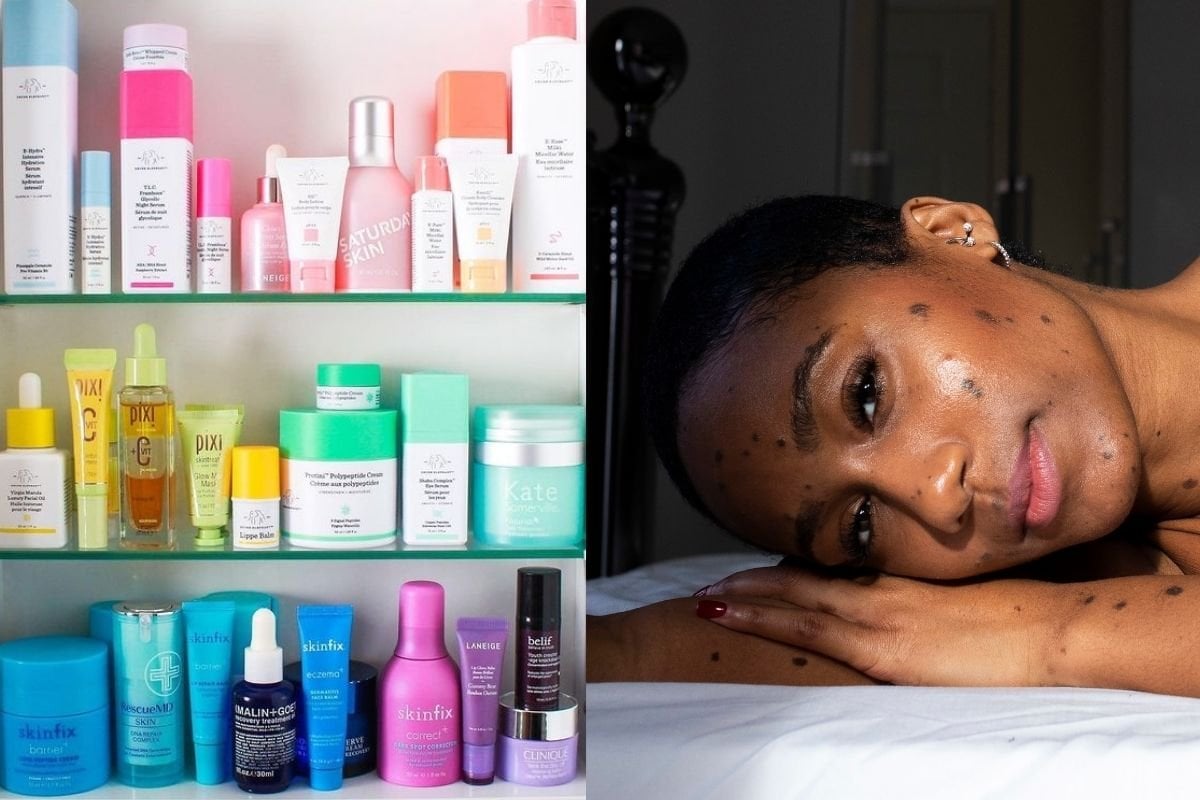
We know you've heard this before, but we'll say it again in case you were listening to a podcast or something: Just because a moisturiser is $200 doesn't automatically mean it works better than one that costs $20. Kay?
As someone who writes and talks about beauty on the regular, one thing I've learnt along the way is that a savvy consumer should always purchase skincare based on the ingredients, not the flashy packaging or marketing gibberish.
Cause when you're trying to craft a skincare routine that won't require you to sink your savings, knowing what actually works and what's worth your money is a very valuable thing.
Watch: Looking for more skincare tips? Check out this Q&A episode of You Beauty. Post continues below.
This then begs the question: Is there anything you should splurge on when it comes to skincare?
I'm glad you asked, friend. Full marks for you.
Because we recently sat down with skin whisperer/PhD-qualified scientist Dr Michele Squire from Qr8 Mediskin and discussed where to save when it comes to skincare - and what's really worth investing in.
What skincare products should you save on?
"Great skincare doesn’t need to be expensive," said Dr Squire. "You can get just as much functionality from a supermarket brand of moisturiser, moisturising mask, hydrating serum or cleanser as an expensive one."